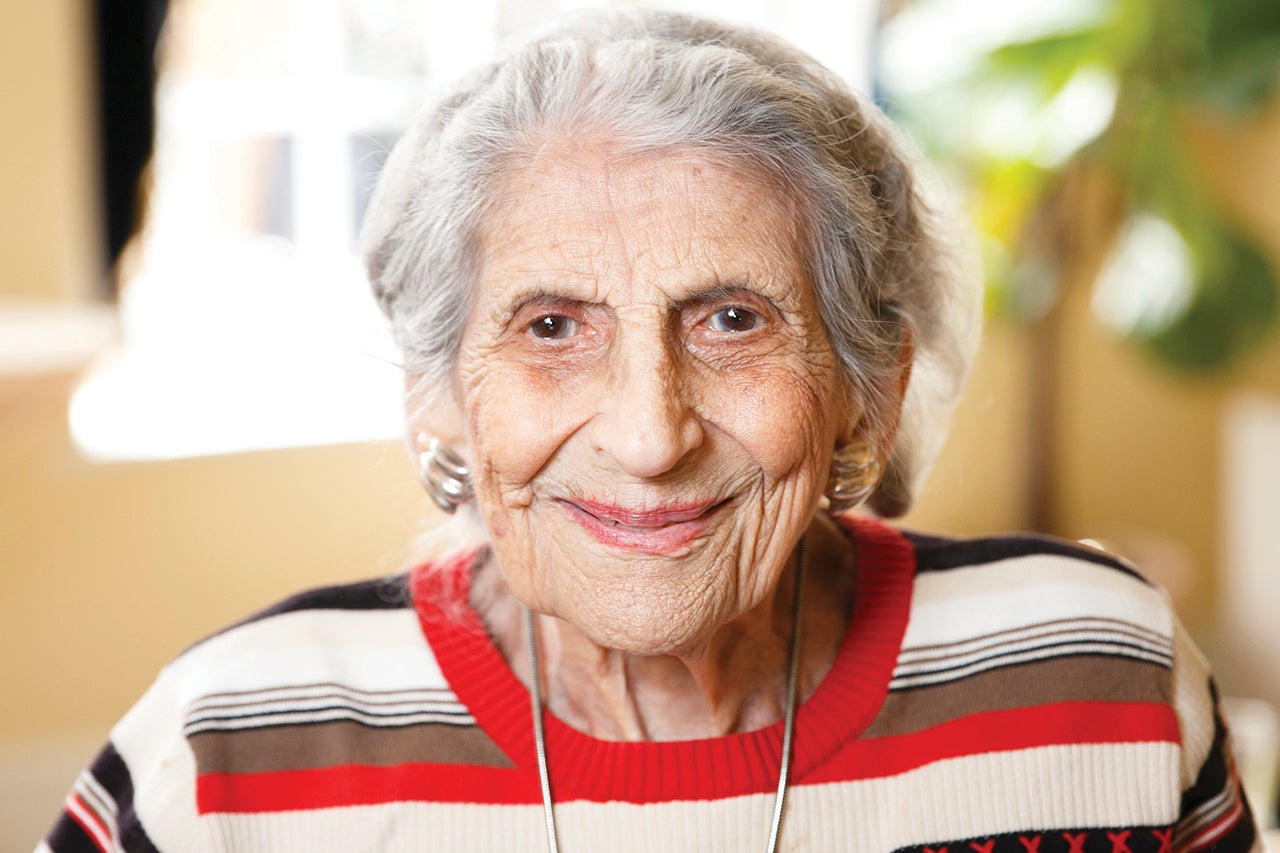If one word could sum up the beguiling life and times of Hilda Debacker, that word may well be brainpower. After all, the professor emeritus at the Medical University of South Carolina enjoyed a career powered by the brain, teaching neuro anatomy for almost 30 years. In that role, she guided medical students through the dense and intricate central nervous system housed in that most complex of organs.
What’s more, Debacker herself is in possession of a decidedly powerful brain. In fact, while still a teenager in her native Romania, she had already wrapped her head around five languages: Romanian, French, English, German and some Spanish. “I like to say I know four and a half languages,” Debacker demurs. She then trained her sizable intellect on pursuing a degree in chemistry from Cornell University, and later a Ph.D. in her chosen field of anatomy from MUSC.
“Many of us at MUSC admired Hilda’s smarts,” says Edward Hogan, former chair of the neurology department. “She not only impressed us with her facility as an anatomy professor, she also did so with her prescient real estate dealings around downtown Charleston.”
At 92 years old, Debacker continues to crackle with sharp observations, holding forth with wry wit on life and career as well as the entwined roots of the extended family she and her late husband, Rene, established in their beloved adoptive city of Charleston. Recently, she has also focused her thoughts on supporting the College of Charleston. Honoring the wishes of her husband, who died in 1997, she announced the Rene and Hilda Debacker Endowed Scholarship, a legacy commitment to the College.
“Rene wanted to start a scholarship to go to students of Charleston County,” says Debacker, explaining that the couple shared the desire to support their home terrain in their philanthropic endeavors. Part of a legacy plan, the scholarship does just that, providing merit-based support for students from Charleston County, S.C.

Cistern Society Luncheon (spring 2017): President Glenn McConnell ’69 recognizes Hilda Debacker for her endowed gift to the College. (Photos by Kip Bulwinkle ’04.)
When they moved to Charleston in 1952, the Debackers brought to their chosen community a wealth of knowledge and a global perspective. Hilda Debacker emigrated from Romania with her family to New York City during World War II. Rene Debacker came to New York from Lille, France, in 1946. There, he met and married Hilda.
According to one member of their extended family, Stafford Green, Rene called Hilda his “bride” for the rest of their many years together. It was in their new home of Charleston that Rene changed career tracks, shifting from his background in textile and chemical engineering, to working nights to earn an accounting degree through correspondence school.
“When we moved to Charleston, it was a very different place than today,” Debacker says. “Then, there were two restaurants in town; now there is one per person.”
From her Rutledge Avenue home, she has witnessed Charleston, come hell or high water, as the local saying goes. “I watched from my window as the Charleston Museum burned down,” she remembers. “It looked like the scene of Atlanta burning in Gone with the Wind.”
However, through Charleston’s highs and lows, the couple flourished. While Hilda untangled the nervous system for nervous new medical students, Rene Debacker worked to co-found the accounting firm Schleeter, Monsen and Debacker CPA, before retiring in 1989. According to his family – which the couple defined as their network of close friends – Rene Debacker’s commitment to education was evident long before the announcement of a scholarship.
“Uncle Rene would take me to the office with all the big computers and teach me things,” recalls Green, the son of one of Hilda Debacker’s dear friends who became a part of their extended family. “Because of this, I majored in computer science in school, and had no problem finding a job after graduating.”
And, Hilda Debacker knows firsthand how scholarships can transform the lives of those students who need them. When she first arrived in New York and was finishing high school, a homeroom teacher asked the class if anyone was interested in the Regents Scholarships, New York State’s merit-based scholarships. “I said, ‘sure,’” muses Debacker. Winning the prestigious and highly competitive scholarship enabled her to attend Cornell. She won an additional scholarship as well, and thus covered all of her tuition and costs. With those credentials, she was primed to continue her studies in Charleston, and eventually embark on a long and deeply rewarding teaching career there.
“People ask me sometimes if I had problems being a woman,” she says, referring to the challenges many professional women confronted at the time she was working. “I never did. My father had two daughters and he was delighted. My husband thought, if anything, women were superior. And then I worked for Dr. Knisely,” she says, referring to Melvin Knisely, the acclaimed anatomist who served as former chair of MUSC’s anatomy department. “He had the good sense to know that for the same money he could get two superior women.”
Many years after retiring from teaching, Debacker still enjoys frequent interactions with students from decades ago. “I was at a high school graduation recently in Winston-Salem, N.C. I was admiring a woman’s ash blonde hair. She turned around, and it was a former student!” she says, her eyes sparkling as she relives the chance reconnection.
Like the network of nerves branching out from the brain, the network the Debackers created throughout their lives continues to reach far and wide. As beloved partners, committed mentors and considerate philanthropists, the Debackers have much to teach us about family, living and giving.




